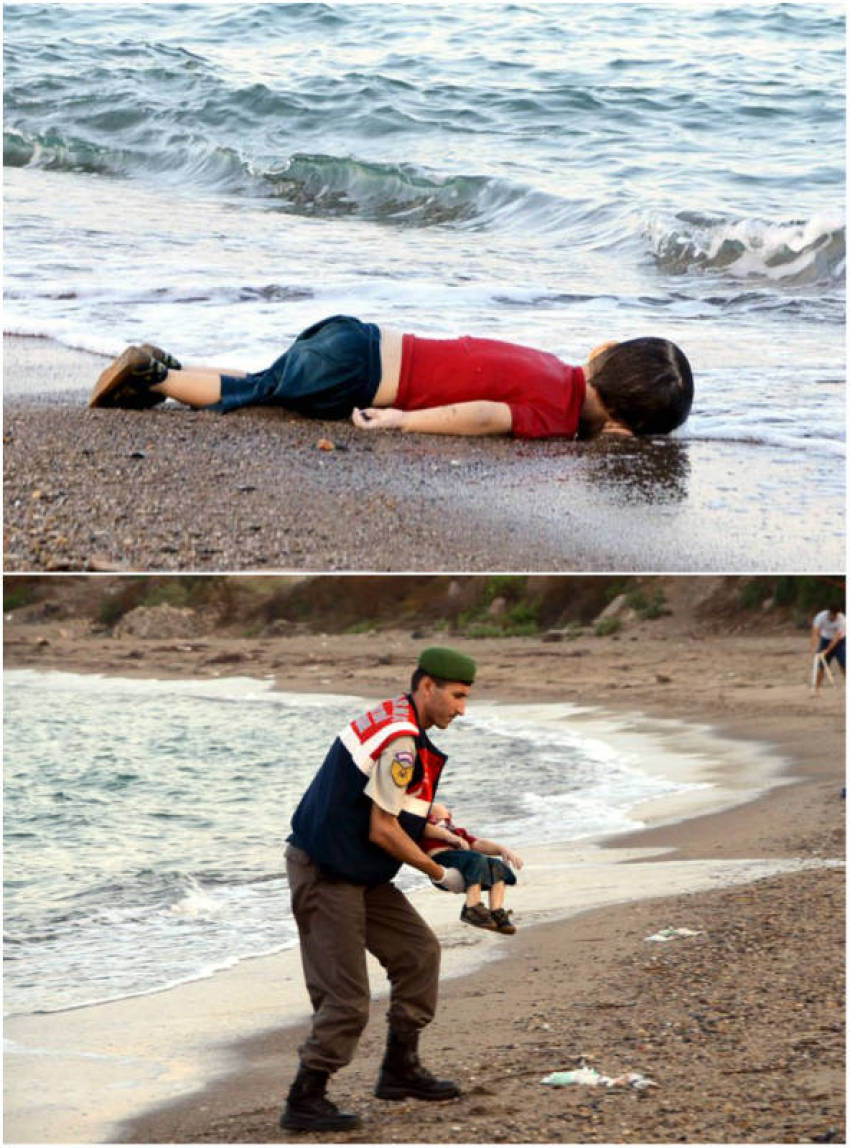Drowned Syrian Boy Depicted as Sex Attacker in Charlie Hebdo Cartoon

French satirical magazine Charlie Hebdo has sparked a new wave of outrage on social media with its latest cartoon, this time depicting the drowned 3-year-old Syrian boy of the world-famous photo last year as a grown-up sex attacker.
"What would have become of the young Alan if he had grown up? A groper in Germany," the caption reads, referring to Alan Kurdi, the dead Syrian boy who washed up on a Turkish beach last September.
The image of the dead boy was used in news headlines around the world, which sparked international attention and sympathy for the plight of the refugees.
Charlie Hebdo's drawings depict two males chasing after terrified women, Reuters noted, in a reference to the mass sex assault attacks that were reported over New Year's Eve in Cologne.
Close to 40 percent of 516 attacks reported in the German city were sexual assaults, with many of the suspects being identified as Arab or North African men.
The assaults sparked outrage across Germany, with thousands of protesters from the far-right PEGIDA movement marching in Cologne with signs such as "Rapefugees not welcome," protesting against Germany's open-door policy to refugees.
CNN, which featured a video showing the cartoons, pointed out that critics across social media have slammed Charlie Hebdo's latest depiction of going too far, however.
"This disgustingly racist Charlie Hebdo cartoon makes me question 'Je suis Charlie' in its entirety," tweeted Australian journalist Ebony Bowden.
"I wonder how many lovers Charlie Hebdo has now?" added George Galloway, a controversial socialist former British MP and London mayoral candidate. "A disgusting racist Islamophic cartoon of little Aylan Kurdi later ..."
Others, such as Maajid Nawaz, chairman of London-based counterextremism think tank Quilliam, suggested, however, that the cartoons are supposed to be a projection of growing anti-refugee tensions in Europe.
"Taste is always in the eye of the beholder," Nawaz wrote. "But these cartoons are a damning indictment on our anti-refugee sentiment."
Charlie Hebdo is known for its widely controversial cartoons, most notably of the Islamic prophet Muhammad, which led to the terror attacks on its offices in Paris last year, where 12 staff members were killed.
It has also strongly criticized Christianity among other religions, and in the one year anniversary of the attacks issued a cover depicting God as an angry jihadist carrying a gun.
The cover was criticized by Vatican newspaper L'Osservatore Romano, which slammed expressions of "political correctness" that at the same time mock people's faith.
The Vatican paper wrote that "behind the misleading banner of uncompromising secularism, the French weekly is forgetting once again what religious leaders of every faith have been repeating for a long time in rejecting violence in the name of religion — that using God to justify hatred is true blasphemy, as Pope Francis has reiterated several times."



























